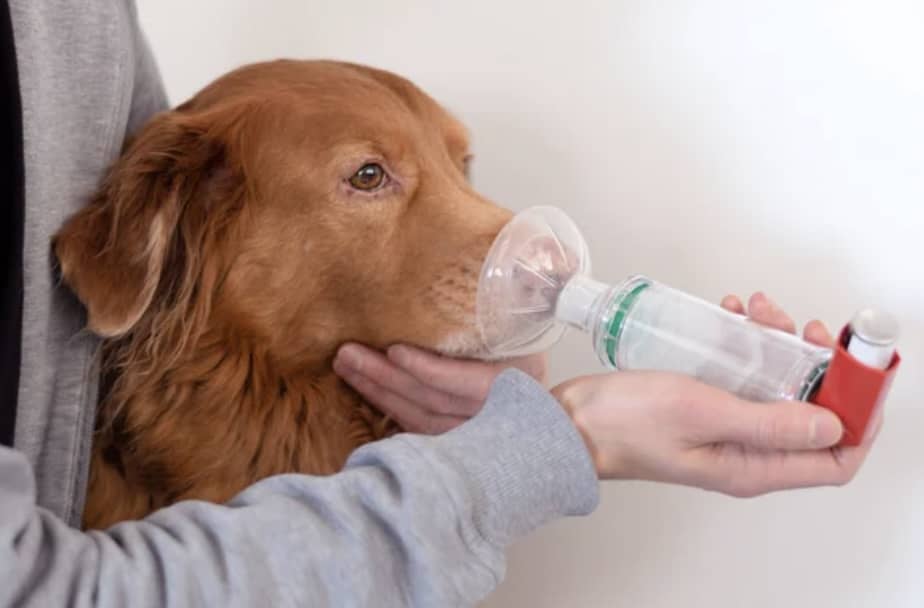Introduction:
Chronic bronchitis in dogs is a respiratory condition characterized by persistent inflammation of the bronchi, which are the airways in the lungs. In this comprehensive article, we will delve into the causes, symptoms, diagnosis, treatment options, and management strategies for chronic bronchitis in dogs. By understanding this condition and its management, dog owners and veterinarians can work together to improve the quality of life for dogs affected by chronic bronchitis.
Causes of Chronic Bronchitis in Dogs:
Chronic bronchitis in dogs can have various underlying causes. Exposure to environmental irritants such as cigarette smoke, dust, pollen, and pollutants can trigger chronic inflammation of the bronchi. Additionally, certain breeds, such as Bulldogs and Pugs, may be predisposed to developing this condition. Other factors that can contribute to the development of chronic bronchitis include viral or bacterial infections, allergies, and genetic predisposition.
Recognizing the Symptoms:
Identifying the symptoms of chronic bronchitis in dogs is crucial for early detection and intervention. Common signs to look out for include:
-
Persistent Cough:
Dogs with chronic bronchitis often have a persistent, dry, and hacking cough that may worsen with exercise or excitement.
-
Difficulty Breathing:
Labored breathing, wheezing, and increased respiratory effort may be observed in dogs with chronic bronchitis.
- Exercise
Intolerance:
Dogs affected by this condition may demonstrate reduced stamina and become easily fatigued during physical activity.
-
Respiratory Distress:
In severe cases, dogs may experience respiratory distress, characterized by open-mouth breathing, bluish gums, and a rapid respiratory rate.
Recommended:
- Petco Review: The Power of Together
- PetSmart Review: Where Pets Inspire Us
- Hill’s Pet Nutrition Review: Pioneering Pet Health and Nutrition
- Royal Canine Review: Tailored Nutrition for Every Pet
- Chewy Review: Pet Care at Your Doorstep
Diagnosing Chronic Bronchitis in Dogs:
To diagnose chronic bronchitis in dogs, veterinarians may perform a combination of tests and examinations. These include:
-
Physical Examination:
The veterinarian will assess the dog’s overall health, listen for abnormal lung sounds, and evaluate the severity of respiratory symptoms.
-
Radiography:
Chest X-rays can help identify any abnormalities in the lungs and rule out other respiratory conditions.
-
Bronchoscopy:
In some cases, a bronchoscopy may be performed to visualize the airways and collect samples for further analysis.
-
Laboratory Tests:
Bloodwork, including a complete blood count and biochemical profile, can provide valuable information about the dog’s overall health and rule out other underlying conditions.
Treatment and Management Options:
The treatment and management of chronic bronchitis in dogs aim to reduce inflammation, alleviate symptoms, and improve the dog’s quality of life. Here are some common approaches:
-
Medications:
Veterinarians may prescribe bronchodilators to open up the airways and reduce coughing. Anti-inflammatory medications, such as corticosteroids, may also be prescribed to reduce airway inflammation.
-
Environmental Modifications:
Minimizing exposure to irritants is essential. This includes avoiding cigarette smoke, using air purifiers, and keeping the dog’s environment clean and dust-free.
-
Weight Management:
Maintaining a healthy weight can help alleviate respiratory symptoms in overweight or obese dogs.
-
Exercise and Activity:
Regular, moderate exercise can help improve lung function and overall fitness. However, it is important to avoid excessive exercise that may trigger respiratory distress.
-
Nutritional Support:
Providing a balanced diet with appropriate nutrients can support the dog’s immune system and overall respiratory health.
Conclusion:
Chronic bronchitis in dogs is a respiratory condition that requires proper management to improve the quality of life for affected dogs. By recognizing the causes, symptoms, and treatment options discussed in this article, dog owners and veterinarians can work together to provide the best possible care. Early detection, appropriate treatment, environmental modifications, and lifestyle adjustments can significantly enhance the well-being of dogs living with chronic bronchitis.
References:
- Padrid, P. (2019). Chronic bronchitis in dogs. Merck Veterinary Manual.
- Johnson, L. R. (2016). Chronic bronchitis and bronchiectasis in dogs. Veterinary Clinics: Small Animal Practice, 46(6), 1141-1159.
- King, L. G. (2013). Chronic bronchitis in dogs. Veterinary Clinics: Small Animal Practice, 43(2), 273-284.
- Padrid, P. (2018). Chronic bronchitis in dogs. Today’s Veterinary Practice, 8(3), 45-51.


